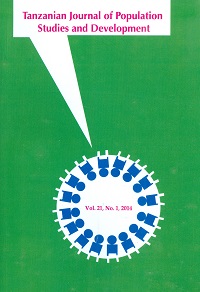Rethinking Physical Access to Healthcare: Aligning Healthcare Facilities with Population in Mbeya City, Tanzania
Abstract
Local governments, such as the Mbeya City Council (MCC), desire its citizens to have better physical access to healthcare services as stipulated in the national health policy and the World Health Organization (WHO). The challenge, however, is for the MCC to ensure that physical accessibility to healthcare facilities align with urban planning initiatives and the respective population in the wards. This study employed the Geographical Information System (GIS) and a Location-Allocation model in data analysis. Multiple spatial and aspatial datasets were analysed to establish the current distribution of healthcare facilities, spatial accessibility by the people, population distribution and how physical accessibility to healthcare facilities is reflected in physical planning of urban space. The results show that on average people in the respective wards travel over 15 €“25km, which is beyond the 5km distance recommended by the WHO. In addition, people spend 30 €“51 minutes to reach healthcare facilities that are centrally located within the city. Similarly, physical planning of urban space mismatch with actual required people ' s accessibility to healthcare facilities. The locations of healthcare facilities and population distribution do not align, implying that there are still demand points that need to be served in the wards. It is concluded that physical planning for the location of healthcare facilities should reflect the population distribution and pace of urbanization of a city to improve access to healthcare facilities. The use of the central place theory in physical planning of the city, when combined with a people-centred perspective in planning for healthcare facilities, would place healthcare facilities in close proximity to the people. It is recommended that new siting of healthcare facilities should consider the distribution of the population in the city. In addition, physical planning of the urban infrastructure and the initiatives to improve accessibility to health must align at local level.
Keywords: healthcare, Mbeya city, physical accessibility, population, Tanzania



